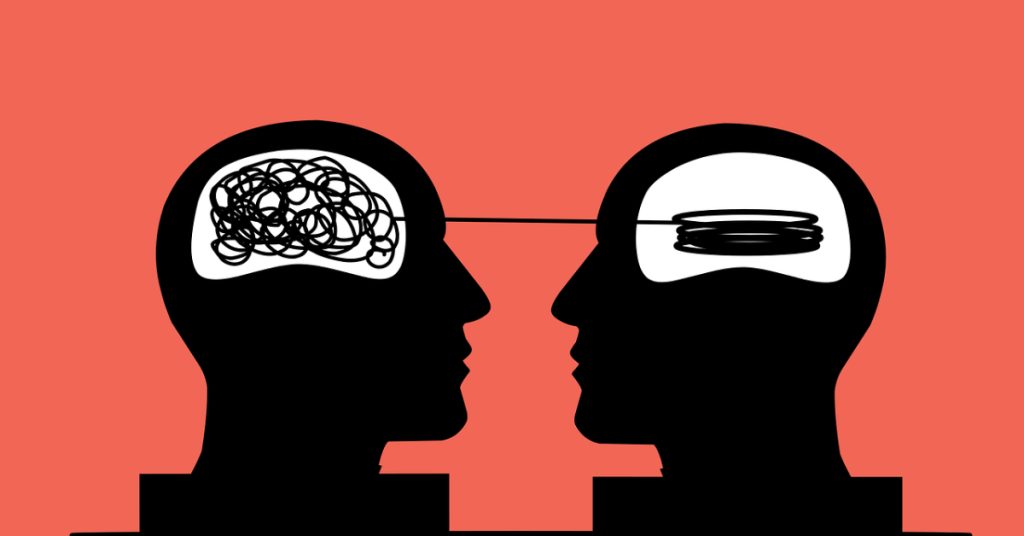How to find a counsellor
Many siblings find that the experience of growing up with a disabled brother or sister has shaped who they are as an adult. Being a sibling may have impacted the way you approach life, how you think and feel about things, your job, where you live and your relationships. Some siblings may have had traumatic experiences growing up too. Talking doesn’t change what has happened but it can change how you feel about it, and siblings often seek out counselling for this reason. As an adult, this can help you going forward and stop you from being held back by habits or feelings that might be limiting how you live your life. Some siblings also seek counselling or family therapy to help facilitate discussions with parents about planning for the future.
Do you need urgent help? Click here to ‘Get help now’ (from Mind, the mental health charity)
How to find a counsellor
Here are some options:
- See your GP, explain how you are feeling and ask what counselling services are available in your area. Your GP may need to refer you, or you may be able to self-refer. It’s always worth having the conversation about your mental health with your GP as they may be able to offer other treatments and different types of support too. If you are a carer for your brother/sister – make sure that the GP knows this too.
- In some areas, you can self-refer directly without needing to see your GP. In England, you can search for your local NHS psychological therapies service (IAPT). In Scotland, you can self-refer to Living Life for phone counselling. In Northern Ireland, the charity Contact lists free counselling services on it’s website here. In North Wales, you may be able to self-refer to Parabl counselling services for short-term/low level support.
- Find and pay for a counsellor privately (scroll down for more advice). Many offer reduced fees for people on low income, so don’t immediately discount it as an option if you have limited funds.
More options to find a free or low-cost counsellor:
- If you, or your partner, has private medical insurance, counselling sessions may be included as part of this package.
- If you’re a student, your university should have a student wellbeing department. Many of these offer free counselling, and the reason for your counselling does not have to directly relate to your studies.
- If you’re in work, your employer may have an Employee Assistance Helpline which may offer free counselling. As with student counselling, the reason for your counselling does not have to relate to or impact on your work.
- Search online for faith-based organisations that may offer free or low-cost counselling. For example, the Muslim Women’s Network offer free telephone counselling and Inspirited Minds is charity that offers low-cost counselling predominantly to people of Islamic faith.
- Pride Space offer free and low-cost therapy to LGBTQ+ people living in the UK. You can also search online for LGBTQ+ organisations in your area that may offer free counselling or may have other helpline services that can signpost you further. For example, The LGBT Foundation offer free talking therapy to people living in the Greater Manchester area.
- The Mix offers up to eight sessions of phone or webchat counselling to young people aged 25 and under.
- Black Minds Matter connects Black individuals and families with free mental health services by professional Black therapists to support their mental health.
- Bayo is a space to find collectives, organisations and services from across the UK – for the Black community – to support your mental health and wellbeing.
Counselling provided by the NHS, employee assistance programmes or universities may have a limit on the amount of sessions available. There may also be waiting lists, depending on the area and the service.
Counselling should always be confidential. An NHS counsellor should not pass their notes to your GP (unless you ask them to), a counsellor through an employee assistance programme should not tell your boss that you’re having sessions and a university counsellor should not be sharing information about what you’ve shared with your tutors or your parents. A counsellor should only break confidentiality if they are concerned someone is at risk of serious harm.
For siblings who face racism, it’s important that a counsellor understands how racism affects mental health. Read more about racism and mental health, including how to find culturally competent therapy from the mental health charity, Mind.
Online self-help programmes
An online self-help programme usually consists of working through different exercises over a course of six or eight weeks. You might be able to choose a particular theme, for example, building resilience, coping with stress or managing anxiety. Some self-help programmes come with guidance – such as a counsellor checking in with you by email or phone at set periods – or may have an online peer-support community. They are often based on Cognitive Behavioural Therapy (CBT) and can help you build skills to better cope with your emotions. These programmes can be really useful for people who prefer to go at their own pace and who benefit from the convenience of taking part from home. Online self-help doesn’t replace one-to-one counselling and it’s always best to talk to your GP about which treatment options are best for you.
How to find online self-help programmes:
- Speak to your GP, explain how you are feeling and ask what online programmes are available. Your GP may may be able to give you a code to a programme such as Silver Cloud, which you can then self-refer to.
- If you’re in work or in education, your employer or student services department may be able to refer you to an online programme.
- Other self-help programmes: If you live in England, you can self-refer to the Mind Supported Self-Help programme. If you live in Wales, the Mind Supported Self-Help programme may be available from some local branches of Mind. Find your nearest branch here. You can also self-refer to the online programme Silver Cloud via NHS Wales here.
Online peer support
Mind’s online community Side by Side is for anyone over the age of 18 and is available 24/7. It’s a moderated community to share your mental health experiences with others who understand. It’s simple to use and isn’t linked to Facebook or other social media sites, so you can share anonymously if you prefer.
Are you looking for support following a specific incident?
If your disabled brother or sister has experienced abuse or neglect, this will have had a major impact on them. It may also have had an impact on you, and many siblings contact us seeking counselling support specifically following an incident, or chain of incidents.
- Read our advice on Dealing with trauma after abuse
- Contact the Respond family support service. Respond is a charity aiming to lessen the effect of trauma and abuse on people with learning disabilities their families and supporters. Services include face-to-face or telephone counselling and groups in which families can meet and be supported by other families and better cope with their experiences. Families feel better understood, less isolated and more connected.
“It’s ok to want to talk about experiences of being a sibling, even if nothing terrible is happening – you might just feel a bit lonely with the experience and want to process how to develop a lasting adult relationship with your sibling and their care arrangements” – Adult sibling
“My counsellor helped me to make a connection between having a disabled sister (and how that had impacted on me) and experiencing depression and anxiety later in life, particularly after becoming a parent. She helped me to understand my own behavioural traits better” – Adult sibling
“Growing up with a disabled sister meant that my parents worried a lot about her health, and while I’m sure they didn’t mean for this to happen, I started to feel bad about my own health – like survivor guilt, almost. I think my eating disorder was directly influenced by the environment I was in and the messages I received. It was part self-punishment but also a way of proving that I had needs, and I wasn’t always “okay” like other people seemed to think” – Adult sibling

Finding a private counsellor
The terms ‘counsellor’, ‘therapist’ and ‘psychotherapist’ are often used to describe similar services in the UK. It can feel a bit daunting searching for someone to begin with, so take your time and read up on what you need to.
- Search online using a directory such as UK Council for Psychotherapy (UKCP) and/or British Association for Counselling and Psychotherapy (BACP) as both list accredited members.
- Narrow down the search with words like ‘family’, ‘relationships’, ‘disability’, and ‘autism’ if these are relevant for you. A counsellor with a background in these areas may be beneficial.
- Search by postcode if you would prefer to have sessions face-to-face. Consider the distance you are able to travel. You may feel a bit worn out after a session, so it is worth thinking about the time and distance you’re prepared to go. Many counsellors also offer sessions over video calls.
- Read more about the type of therapy someone offers on the UKCP website. You can also call the UKCP for further advice.
More directories to search:
- The Black, African and Asian Therapy Network
- The Muslim Counsellor and Psychotherapy Network.
- SouthAsianTherapists.org
- Pink Therapy is the UK’s largest independent therapy organisation connecting LGBTQIA+ clients with therapists who adopt a sexuality and gender affirmative stance to their work.
- TranzWiki is a directory of organisations that support trans and gender diverse people and their families. You can search for support by region and then filter for counselling.
“Although I faced many challenges growing up with a disabled sibling, I often felt other siblings had more demanding/challenging aspects to their daily lives. Due to this, I often felt I wasn’t eligible for counselling as ‘others had it worse’ which looking back was only hindering me more. No matter how you feel, your feelings are valid and you deserve support” – Adult sibling
“Earlier this year, I made the decision to have Talking Therapies CBT as well as counselling to enable me to process the traumatic memories I have relating to my brother’s mistreatment in the first ever residential placement he ever lived in (he lived at home until he was 39 years old). I found both the CBT and counselling very helpful. Each day now, I practise worry time regarding any practical and hypothetical worries I have for my brother.” – Adult sibling

What to ask a private counsellor
At Sibs, we’re unable to recommend or endorse specific counselling services. Here’s our advice on what to ask a private counsellor so that you find someone who is the best fit for you:
- Most counsellors offer a short, free, phone consultation. Make use of this, and ask as many questions as you would like. Everyone is different and it’s important to find someone you feel comfortable with and who is a good fit for your needs.
- Always ask a counsellor about the training and qualifications they have. There is no legislation that regulates counsellors – anyone can set up a website and decide to offer this service. Training courses can vary, from a few months to a few years.
- Ask about the cost and length of sessions. Sessions are usually between 50-60 minutes and cost between £60 – £120. Many counsellors offer reduced fees for people on low income, so do ask about this if you need it.
- Ask them about their experience of working with siblings or more generally with families where a person has a disability. If they don’t have any experience in this area, then it’s not necessarily a barrier to you seeing them. What’s important is that they are willing to listen and to understand.
It is OK to try out a few counsellors before finding one to have ongoing sessions with. Every counsellor is different, and it’s important that you have someone you feel comfortable with.
“I definitely felt exhausted/emotional/drained after each session! So it’s definitely important to think about how you’ll get home safely (if seeing the therapist in person), and what you have planned to do immediately after the session – e.g. you may need some down-time to ‘decompress’, rather than going straight into another activity.” – Adult sibling
“Having counselling has had a beneficial impact on how I think and feel about my family relationships, and allowed me to move forward in terms of dealing with my feelings of guilt, sadness and loss associated with my brother’s disability” – Adult sibling
“I was largely unaware of my need for therapeutic help / clarity about my situation as I’ve grown up thinking that this is how things have always been – I’ve always ‘accepted’ it, it’s just ‘normal’ to me – but I went to counselling for general anxiety and it really did help me to make sense of my family situation and how it had affected me” – Adult sibling

Speak up for your needs as a sibling
Siblings are used to coming second (or third, or fourth…) to the needs of another. Whilst siblings are often used to advocating for the needs of their disabled brother or sister, it can be challenging for them to speak up for their own needs.
When you first meet a counsellor (whether you found them through the NHS, your employer or privately) it’s OK to ask them to read pages of the Sibs website or our eBook to understand sibling issues more widely and to have that context
If your counsellor doesn’t have experience of sibling issues, it’s important that they’re willing to listen and understand. If they don’t, it’s OK for you to stop seeing them and ask to be seen by someone else.
“I showed the counsellor a photo of my sibling which I believe helped them to understand the impact of having a disabled sibling a bit more – especially when it’s a rare disability that they’ve not heard of” – Adult sibling
“The first person I spoke didn’t seem to completely understand my situation and therefore it felt a bit frustrating. I felt very misunderstood.” – Adult sibling

Waiting for counselling
Being on a waiting list for NHS or private counselling can be hard. You know the support is on it’s way but you might already be in a place where you urgently need to speak to someone.
Siblings of a person with a lifelong disability are used to comparing themselves to someone who “has a more difficult life”. Siblings may also have had this reinforced by parents and other family members, who in a well-meaning way, might have said things like “Just look at how lucky you are compared to your sister”. These kind of comments can make it hard for siblings to seek support because they are worried they are taking the place of someone else who needs it more.
Please call one of these helplines when you need to talk.
You deserve support, your feelings are valid and they are just as important as anyone else’s.
- To talk about anything that is troubling you, call Samaritans on 116 123 any time of day or night or email jo@samaritans.org
- Prefer to text? Use the ‘Give us a shout’ text service. Text ‘Shout’ to 85258 to talk about your feelings, at any time of day or night
- If you identify as gay, lesbian, bisexual or transgender, you can call Switchboard on 0300 330 0630 (10am–10pm every day), email chris@switchboard.lgbt or use their webchat service. All phone operators identify as LGBT+.
- CALM (for men). Phone line 0800 58 58 58, open 5pm – midnight. Webchat service here
- Search online for faith-based helplines, such as Helpline (Jewish) and The Sikh Helpline
- If you’re a farmer or from a rural area and you’re struggling with stress/depression, you can call the Farming Community Network on 03000 111 999, 7am-11pm every day of the year
- If you’re under 25, you can phone The Mix on 0808 808 4994 (3pm–midnight every day), text THEMIX to 85258 (available 24/7), request support by email using this form or use the webchat service here. There’s also the Muslim Youth Helpline – call or WhatsApp 0808 808 2008 (4pm – 10pm every day), or use the webchat service here.
- If you’re over 55, you can phone The Silver Line for older people. Call anytime on 0800 4 70 80 90
- If you live in Wales, you can call the Community Advice and Listening Line (C.A.L.L.) on 0800 132 737 (open 24/7) or you can text ‘help’ followed by a question to 81066
- If you live in Scotland, you can phone Breathing Space Scotland on 0800 83 85 87 (open Mon-Thurs 6pm-2am; Fri-Mon 6pm – 6am) or use the webchat service
- If you live in Northern Ireland, you can phone Lifeline on 0808 808 8000 (open 24/7)
- You can also search for other types of mental health support in your local area on the Hub of Hope website
Suicide prevention
- Suicide Prevention UK. Offers a supportive listening service to anyone with thoughts of suicide. Phone 0800 689 5652 (open 6pm – midnight everyday)
- SOS (Silence of Suicide). Confidential helpline for anyone in mental health crisis. Phone 0808 115 1505 (open Monday to Friday 8pm to Midnight and Saturday/Sunday 4pm until Midnight)
- Papyrus HOPELINEUK. If you’re under 35 and struggling with suicidal feelings phone 0800 068 4141 (open 9am – midnight everyday), email pat@papyrus-uk.org or text 07860 039967
You are not alone and you deserve support.
Online peer support
Mind’s online community Side by Side is for anyone over the age of 18 and is available 24/7. It’s a moderated community to share your mental health experiences with others who understand. It’s simple to use and isn’t linked to Facebook or other social media sites, so you can share anonymously if you prefer.

Feedback
Sibs would like to thank all the adult siblings on our reader panel who generously shared their time and experiences to help develop this page. Interested in joining our reader panel? Click here to find out more.
What do you think of this page? Drop us a line at info@sibs.org.uk or fill in this feedback form.